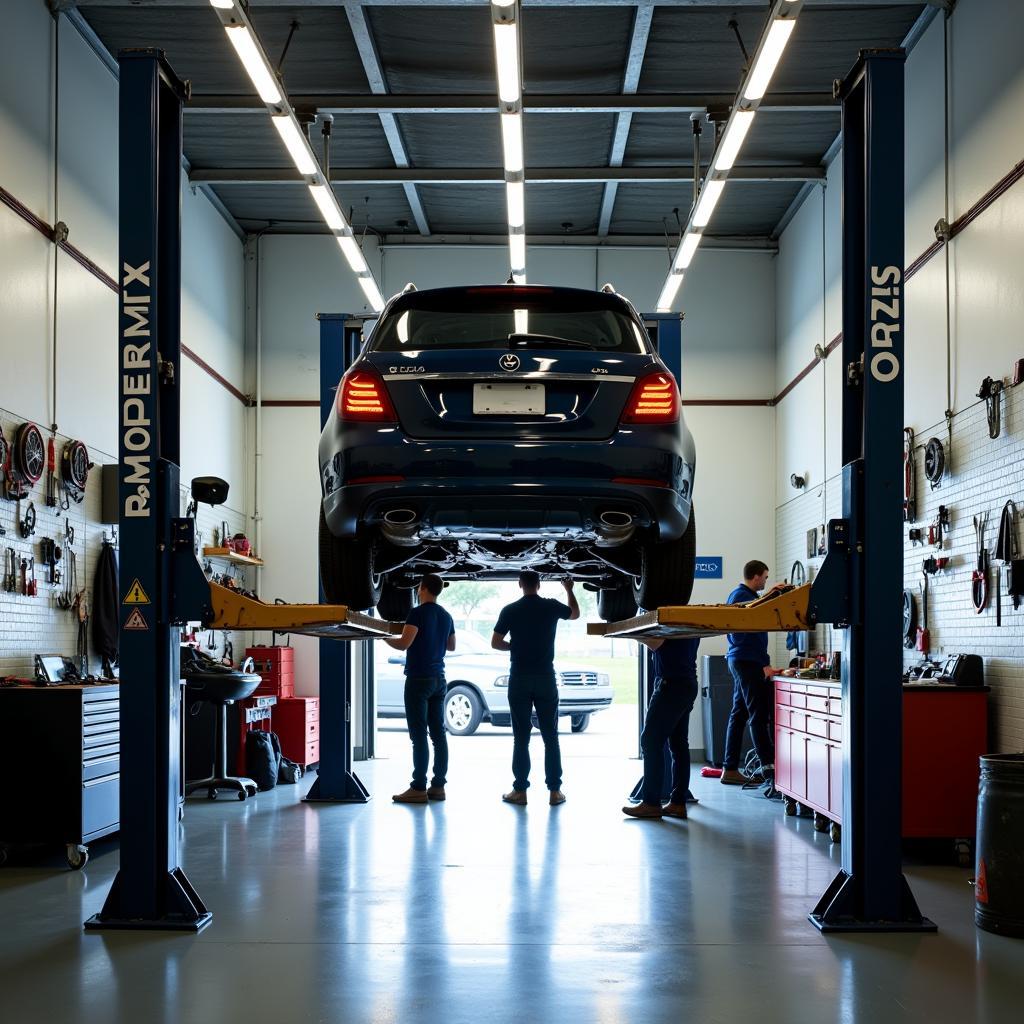Finding out what’s wrong with your car can feel like navigating a maze. Is that check engine light serious? Why is your car making that strange noise? The answer lies in getting a proper car diagnostic. This article will guide you through the best places to get a diagnostic for your car, helping you save time, money, and unnecessary headaches.
Understanding Car Diagnostics: Why They Matter
Before we dive into where to get your car diagnosed, let’s understand why it’s crucial. Modern cars are complex machines with intricate computer systems. A car diagnostic is like a health check for your vehicle. It uses specialized software to read trouble codes stored in your car’s computer, revealing potential issues.
A car diagnostic can pinpoint:
- Engine problems
- Transmission malfunctions
- Brake system issues
- Airbag system faults
- Electrical problems
- And much more!
Early detection through diagnostics can save you from costly repairs down the road. Ignoring warning signs can lead to more severe damage and even put your safety at risk.
Where to Get Diagnostic for Car: Weighing Your Options
You have several options for getting your car diagnosed, each with its pros and cons:
1. Auto Repair Shops:
- Pros: Mechanics at repair shops have the experience and specialized tools for thorough diagnostics. They can often provide an immediate estimate for repairs.
- Cons: Repair shops typically charge a diagnostic fee, which can vary significantly. Some shops might inflate the cost or recommend unnecessary repairs.
 Interior of a busy auto repair shop
Interior of a busy auto repair shop
2. Dealerships:
- Pros: Dealerships employ technicians specifically trained on your car’s make and model. They have access to the latest software and parts.
- Cons: Dealerships are often the most expensive option for both diagnostics and repairs.
3. Mobile Mechanics:
- Pros: Mobile mechanics come to you, saving you time and hassle. They can often offer competitive prices.
- Cons: Not all mobile mechanics have the same level of expertise or equipment as a dedicated shop.
4. Auto Parts Stores:
- Pros: Some auto parts stores offer free or low-cost basic code reading using an OBD-II scanner. This can be a good starting point to identify simple issues.
- Cons: Basic code readers might not provide comprehensive information or diagnose complex problems.
5. DIY with an OBD-II Scanner:
- Pros: Affordable scanners are available for purchase, allowing you to read and clear codes yourself. Numerous online resources can help you interpret the codes.
- Cons: This option requires some technical knowledge and comfort working on your car. Misinterpreting codes can lead to incorrect repairs.
“Knowing where to get a proper diagnostic is key, but remember, the cheapest option isn’t always the best. Invest in quality diagnostics for long-term savings and peace of mind,” says Michael Thompson, Senior Automotive Technician at XYZ Auto Services.
Choosing the Right Option for You
The best place to get a diagnostic for your car depends on your specific needs and budget:
- Serious Warning Signs (flashing check engine light, unusual noises, handling issues): Choose a reputable repair shop or dealership for a comprehensive diagnosis.
- Routine Check or Basic Code Reading: An auto parts store or DIY scanner might suffice.
- Convenience and Time Constraints: Opt for a mobile mechanic if you have a busy schedule.
Beyond the Diagnostic: Next Steps
Once you have a diagnosis, you can decide on the best course of action:
- Simple Repairs: You might feel comfortable tackling minor repairs yourself.
- Complex Issues: Seek professional help from a trusted mechanic.
- Second Opinions: Don’t hesitate to get a second opinion if you’re unsure about a diagnosis or recommended repair.
Where to Get Diagnostic for Car: Making Informed Decisions
Getting a car diagnostic doesn’t have to be a daunting task. By understanding your options and choosing the right service provider, you can ensure your car stays in top condition. Regular diagnostics are a valuable investment in your car’s health, longevity, and your safety on the road.
FAQs about Car Diagnostics:
- How often should I get my car diagnosed? It’s generally recommended to get a diagnostic check at least once a year or whenever your check engine light comes on.
- Can a diagnostic tell me exactly what’s wrong? While a diagnostic can pinpoint the source of the problem, further inspection by a mechanic might be needed to determine the exact cause and solution.
- Are there any free diagnostic options? Some auto parts stores offer free basic code reading, but it might not be as comprehensive as a professional diagnostic.
For more information on car diagnostics and other car maintenance tips, explore these helpful resources:
Remember, if you need assistance, our team at DiagFixPro is here to help! Contact us via WhatsApp: +1(641)206-8880 or Email: [email protected]. We offer 24/7 customer support for all your car diagnostic needs.

Leave a Reply